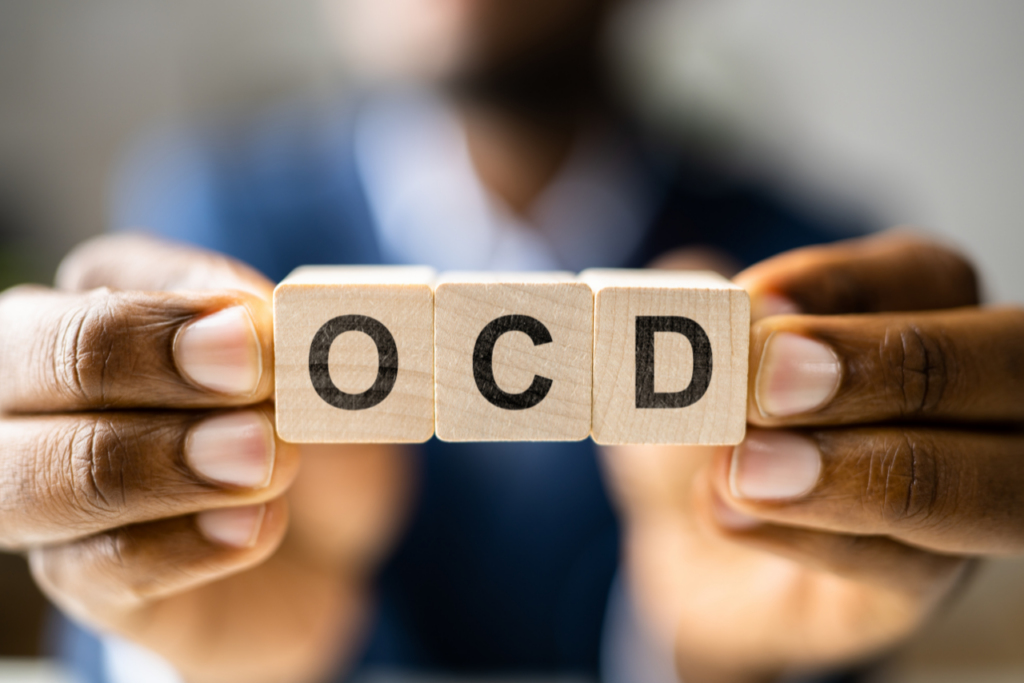
bsessive-Compulsive Disorder, or OCD, is a mental health condition characterized by intrusive thoughts (obsessions) and repetitive behaviors (compulsions) that can significantly disrupt daily life. Understanding what is OCD caused by offers valuable insight into its treatment and management.
While the exact causes of OCD remain unclear, several factors are believed to contribute to its development. These include genetic predispositions, brain structure and function, environmental influences, and psychological stressors.
At The Meadowglade in Moorpark, California, we provide tailored support for individuals managing OCD and other mental health challenges. Identifying the root causes of OCD can be an essential first step toward recovery.
If you or a loved one are struggling with OCD, help is available at The Meadow Glade. Call us today or visit our admissions page to learn more.
What Causes OCD?
OCD is a complex condition with no single, definitive cause. Instead, it is thought to arise from a combination of biological, psychological, and environmental factors. Let’s break these down:
1. Genetic Factors
Research on what is OCD caused by suggests that the condition often runs in families, indicating a genetic component. If a close relative, such as a parent or sibling, has OCD, the likelihood of developing the condition increases. However, genetics alone do not determine whether someone will experience OCD; they simply increase the risk.
Studies have identified certain genes associated with OCD, but these findings are still in the early stages. Scientists believe that a combination of genetic variants may contribute to the disorder rather than a single gene being responsible.
2. Brain Structure and Function
Neurological studies have shown that differences in brain structure and activity may play a role in OCD. Specifically, the following areas are often implicated:
- Basal Ganglia and Frontal Cortex: These regions are involved in decision-making and controlling repetitive behaviors. Overactivity in these areas has been linked to OCD.
- Serotonin Imbalance: Serotonin, a neurotransmitter that regulates mood and behavior, is often found to be imbalanced in people with OCD. Medications like selective serotonin reuptake inhibitors (SSRIs) aim to correct this imbalance.
Advanced imaging techniques continue to shed light on how the brain functions in individuals with OCD, but much remains to be discovered.

Environmental Influences on OCD
While biology plays a significant role, environmental factors can also contribute to the onset or worsening of OCD. Some key influences include:
1. Stressful Life Events
Trauma or significant life changes—such as the death of a loved one, abuse, or divorce—can act as triggers for OCD symptoms. In some cases, stress may worsen preexisting symptoms or lead to their development in individuals predisposed to the disorder.
2. Infections and Autoimmune Responses
In rare instances, OCD symptoms may emerge after certain infections. Pediatric Autoimmune Neuropsychiatric Disorders Associated with Streptococcal Infections (PANDAS) is a condition where children suddenly develop OCD symptoms following a strep infection. This highlights how the immune system and environmental factors may interact to influence mental health.
3. Learned Behaviors
Children who grow up in environments where obsessive thoughts or compulsive behaviors are modeled may be more likely to adopt similar patterns. While not a direct cause, these learned behaviors can reinforce OCD tendencies.
Psychological Factors in OCD Development
OCD is not just a biological or environmental condition; psychological factors also play a role. These may include:
- Cognitive Patterns: Individuals with OCD often have heightened sensitivity to perceived threats or an exaggerated sense of responsibility. These thought patterns can lead to compulsive behaviors as a way to mitigate anxiety.
- Perfectionism and Control: People with OCD may have a strong need for control or perfectionism, which exacerbates symptoms. For example, they may repeatedly check locks or excessively clean to feel safe or in control.
What Does This Mean for Treatment?
Understanding what is OCD caused by has paved the way for effective treatments. While the condition may not be fully “curable,” it is highly manageable through therapies, medications, and lifestyle changes.
1. Therapy
- Cognitive Behavioral Therapy (CBT): This is the most common form of therapy for OCD. It focuses on identifying and changing negative thought patterns that fuel obsessions and compulsions.
- Exposure and Response Prevention (ERP): A specialized form of CBT, ERP helps individuals gradually face their fears while resisting the urge to perform compulsions.
2. Medication
SSRIs, such as fluoxetine or sertraline, are often prescribed to help balance serotonin levels in the brain. These medications can reduce the intensity of OCD symptoms and improve quality of life.
3. Lifestyle Changes
- Mindfulness and relaxation techniques, such as meditation or yoga, can help manage stress.
- Regular physical activity and a balanced diet support overall mental health.
- Avoiding alcohol and recreational drugs can prevent the worsening of OCD symptoms.
When to Seek Professional Help
If you or a loved one is experiencing symptoms of OCD that interfere with daily life, it’s essential to seek professional support. Early intervention can make a significant difference in managing symptoms and improving overall well-being.
At The Meadowglade, our experienced team provides compassionate, evidence-based care to help individuals navigate their journey toward recovery. From therapy to holistic treatments, we are here to help you regain control and lead a fulfilling life.

Call Us Today For Support
Living with OCD can feel overwhelming, but you don’t have to face it alone. At The Meadowglade in Moorpark, California, we specialize in personalized mental health treatment plans designed to address the unique needs of each individual.
Take the first step toward understanding and managing OCD today. Call us today or visit our admission page to learn more about our programs and services, or visit our website for additional resources. Together, we can help you find a path to recovery and renewed hope.
